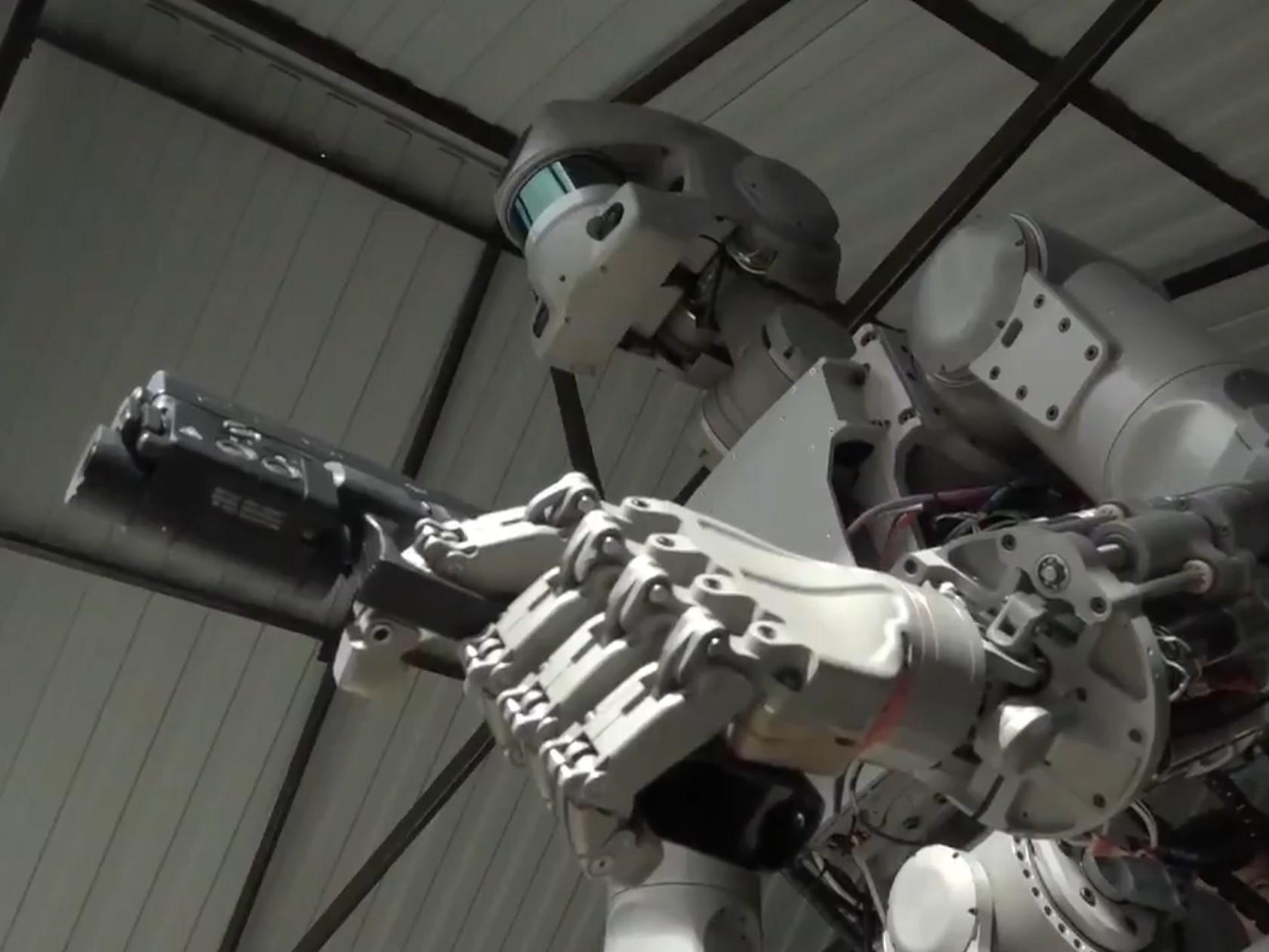Russia sends gun-toting humanoid robot into space
Fedor is capable of shooting two guns at a time with deadly accuracy
Your support helps us to tell the story
From reproductive rights to climate change to Big Tech, The Independent is on the ground when the story is developing. Whether it's investigating the financials of Elon Musk's pro-Trump PAC or producing our latest documentary, 'The A Word', which shines a light on the American women fighting for reproductive rights, we know how important it is to parse out the facts from the messaging.
At such a critical moment in US history, we need reporters on the ground. Your donation allows us to keep sending journalists to speak to both sides of the story.
The Independent is trusted by Americans across the entire political spectrum. And unlike many other quality news outlets, we choose not to lock Americans out of our reporting and analysis with paywalls. We believe quality journalism should be available to everyone, paid for by those who can afford it.
Your support makes all the difference.Russia has launched a humanoid robot into space on a rocket bound for the International Space Station (ISS).
The space robot Fedor (Final Experimental Demonstration Object Research) was the only passenger onboard the Soyuz rocket, which launched from Russia's Baikonur cosmodrome in Kazakhstan on Thursday.
Russia's deputy prime minister Dmitry Rogozin has previously shared videos of Fedor handling and shooting guns at a firing range with deadly accuracy.
The robot will spend 10 days aboard the ISS practising other skills, such as using tools to fix issues that might arise on the space station.
Eventually it is hoped that Fedor, which measures one metre and 80 centimetres tall and weighs 160 kilograms, will be able to take part in space walks with other astronauts.
During the launch, the robot could be heard saying "let's go, let's go", repeating the famous words spoken by Yuri Gagarin, the first man in space.
"The robot's main purpose is to be used in operations that are especially dangerous for humans on board spacecraft and in outer space," said Russian space agency Roscosmos.

It is not the first robot to visit the ISS, with various private firms and space agencies sending up different machines to assist human astronauts on the orbiting laboratory.
The first humanoid robot was sent up by Nasa in 2011, with a similar aim of carrying out jobs that would be too risky for humans to undertake.
A miniature humanoid robot called Kirobo was sent up by Japan in 2013 before returning to Earth 18 months later.
In 2018, Airbus and IBM teamed up to send a "flying brain" to the ISS, equipped with the advanced Watson artificial intelligence technology.

Join our commenting forum
Join thought-provoking conversations, follow other Independent readers and see their replies
Comments